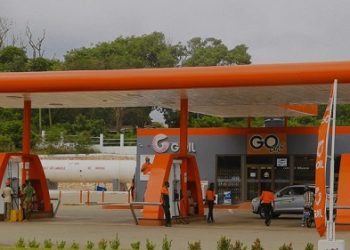Civil society organisations (CSOs) in the energy sector have warned that the country’s downstream petroleum industry will collapse unless urgent policy reforms are implemented.
In a joint statement, the Centre for Environmental Management and Sustainable Energy (CEMSE) and Institute for Energy Policies and Research (ITEPR) described the sector’s stability as fragile – citing high credit risks, poor debt management and weak regulatory enforcement.
“The seeming stability and availability of petroleum products in the market hangs on a volatile system,” the CSOs said. “The Ghanaian consumer is paying for high credit and bad debt management in the current system.”
The statement, signed by CEMSE Executive Director Benjamin Nsiah and ITEPR Executive Director Kwadwo Poku,outlined key challenges that have plagued the sector over the years.
The CSOs acknowledged that the country’s transition from a regulated to a partially deregulated market – particularly after fuel subsidies were removed in 2015 – has increased competition among Petroleum Service Providers (PSPs).
However, they warned that the growing number of market participants has not translated into operational efficiency.
Since deregulation, the number of Bulk Distribution Companies (BDCs) has surged from 31 in 2015 to 53 in 2024 – a more than two-thirds increase. Similarly, Oil Marketing Companies (OMCs) have increased from 139 in 2015 to over 200 in 2024, with a peak growth rate of 19.79 percent in 2021. “The licence renewal fees for BDCs are about US$300,000 annually and a new entrant pays more than US$750,000.
“Despite this expansion, average annual petroleum sales per OMC have remained stagnant, hovering around 24,990 metric tonnes in 2024; nearly the same as in 2015,” the statement noted.
Furthermore, they observed that Ghana currently has more OMCs, 213, than Kenya (106) and Tanzania (60), even though all three markets record annual sales of approximately 5 million tonnes of petroleum products.
The CSOs also criticised lax regulatory enforcement, which they said enables underreporting of sales volumes, tax evasion and the sale of substandard petroleum products.
“The unrestricted number of PSPs in the downstream sector, coupled with weak oversight, has led to market distortions,” they stated.
“In 2024, it was observed that some OMCs did not lift products from any of the depots, yet they had their indicative prices published by the NPA. These companies might be selling poor-quality products to petroleum users since the source of their products is unknown.”
They further alleged that politically connected companies exploit the system, obtaining OMC licences despite lacking physical stations. These firms, the CSOs claimed, divert petroleum products and evade taxes – depriving state agencies such as the Ghana Revenue Authority (GRA) and Bulk Oil Storage and Transportation Company (BOST) of critical revenue.
On the back of these developments, the group proposed the introduction of regulations that will improve financial sustainability of the petroleum value chain, to eradicate the credit system and improve liquidity for the procurement of products.
They called for an increase in the minimum number of stations for OMC licence from 7 to 10 stations and enforcement of this requirement. “There should be punitive actions taken against the board of directors if they approve a company that does not meet this requirement.”
Additionally, they said there should be proof of funds for GH¢10 million from a reputable bank to be provided for all new OMC applications.
Meanwhile, they called for revoking licenses of OMCs and BDCs that did not lift or import any products from any depot in the last 5 years, to ensure good-for-business OMCs and BDCs operate in Ghana’s petroleum downstream.
“These recommendations are to stop companies sponsored by politicians who see the petroleum downstream as an avenue to get easy money at the expense of ordinary consumers.
“These companies who do not own a single station, when given a licence to trade as OMCs, sell the petroleum products and do not pay taxes to GRA – keeping the margins and levies meant for NPA and BOST.”
The group entreated the new management and board of directors for NPA to act swiftly and save the downstream sector.
Source: Thebftonline










Discussion about this post